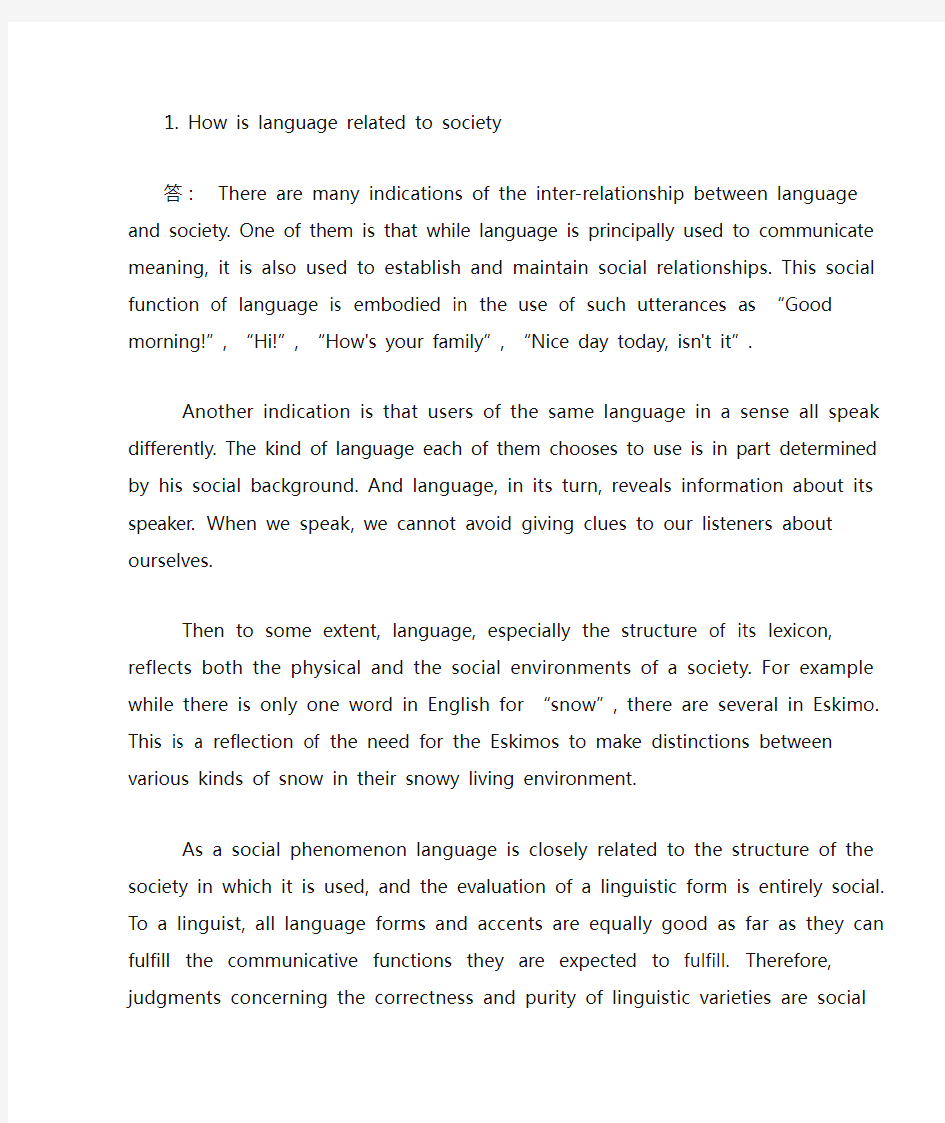
新编简明英语语言学教程第二版 课后习题答案 chapter
- 格式:doc
- 大小:27.00 KB
- 文档页数:3


1. How is language related to society
答: There are many indications of the inter-relationship between language and society. One of them is that while language is principally used to communicate meaning, it is also used to establish and maintain social relationships. This social function of language is embodied in the use of such utterances as “Good morning!”, “Hi!”, “How's your family”, “Nice day today, isn't it”.
Another indication is that users of the same language in a sense all speak differently. The kind of language each of them chooses to use is in part determined by his social background. And language, in its turn, reveals information about its speaker. When we speak, we cannot avoid giving clues to our listeners about ourselves.
Then to some extent, language, especially the structure of its lexicon, reflects both the physical and the social environments of a society. For example while there is only one word in English for “snow”, there are several in Eskimo. This is a reflection of the need for the Eskimos to make distinctions between various kinds of snow in their snowy living environment.
As a social phenomenon language is closely related to the structure of the society in which it is used, and the evaluation of a linguistic form is entirely social. To a linguist, all language forms and accents are equally good as far as they can fulfill the communicative functions they are expected to fulfill. Therefore, judgments concerning the correctness and purity of linguistic varieties are social rather than linguistic. A case in point is the use of the postvocalic [r]. While in English accents without postvocalic [r] are considered to be more correct than accents with it, in New York city, accents with postvocalic [r] enjoys more prestige and are considered more correct than without it.
2. Explain with an example that the evaluation of language is social rather than linguistic.
答: The evaluation of language is social rather than linguistic. This is because every language or language variety can express all ideas that its native speakers want to express. That is to say, language and language variety are equal in expressing meaning. For example, the much-prejudiced Black English can be used by the black people to communicate with each other without feeling any hindrance. But many other people think Black English is not pure English because it does not conform to their grammar and not adopted by educated people. As a result, many people feel shameful to use Black English. From this example we can know that the evaluation of language is social, not linguistic.
3. What are the main social dialects discussed in this chapter How do they jointly determine idiolect
答: The main social dialects discussed in this chapter are regional dialect, sociolect, gender and age. Idiolect is a personal dialect, of an individual speaker that combines elements regarding regional, social, gender, and age variations. These factors jointly determine the way he/she talks. While the language system provides